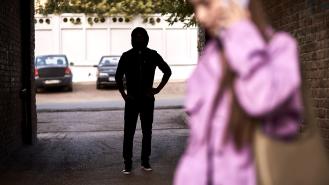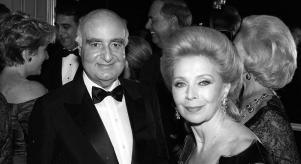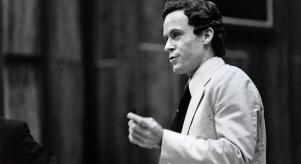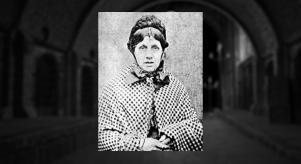
All the crimes committed in 'Love Actually'
Ah, Christmas films. They’re warm, they’re familiar, and they’re weirdly stuffed full of crime. What is it about the festive season that makes watching people commit heinous criminal acts seem so fun and cosy? Yes, there are the obvious ones, like Die Hard, but that’s just the start of it.
Take Love Actually, for example. There’s been plenty said about how Love Actually, a romantic Christmas film, is not at all romantic, actually.
But has anyone made the case that in fact, it works as a big old showcase of criminal behaviour (apart from the actors themselves, of course, who have described the film as ‘psychotic’ and ‘creepy’)? Well, that’s what we’re here for!
We don’t want to ruin it for you, but then again, maybe we do. Either way, the truth will out.
Sexual harassment
Let’s begin with the sexual harassment because there is a lot of it. It happens at almost every workplace shown in the film. If there’s a scene set in a place of work, you know something inappropriate is about to happen.
Case in point: Colin (the Sandwich Man), who will later travel to America for a tryst. He kicks things off with inappropriate comments to one of the women in the office, making her visibly uncomfortable.
Then there’s Colin Firth’s character (can we remember all the characters’ names? We cannot) who has his wife cheat on him but then has a brand-new woman handed to him instead. She is ostensibly his cleaner. What’s more, they don’t speak the same language, so she is unable to talk to him for almost the entire film. However, he does get to see her strip down to her underwear in the name of work, which is both wildly problematic in a work context and the stuff true relationships are built on.
That’s basically it until Firth decides to marry her and shows up to claim her from her family. We probably don’t need to go into why it’s useful to have a conversation with someone before you marry them, but the Equality Act of 2010 speaks for itself. Colin Firth is older, he’s her employer, he’s in a position of power over her, and she is unable to say no in a language he will understand. A big yikes to those power dynamics.
Bullying and assault
And let’s not forget Hugh Grant, AKA the prime minister, AKA the man who asks who he needs to screw to get a cuppa. Spoilers: the answer is Martine McCutcheon’s Natalie. Who knew he was being literal?
The PM fancies Natalie, who fetches his biscuits and swears in front of him. Natalie’s young, insecure and has just been dumped. In other words, she’s vulnerable to the older boss who is literally in charge of the entire UK and likes to flirt with her. Talk about an abuse of power!
Poor Natalie has a hell of a time in her job as an official biscuit-fetcher. She’s fat-shamed by everyone who sets eyes on her (hello workplace harassment).
Then she’s sexually harassed by the US president, prompting Hugh Grant to go against everything he’s decided about policy and cause an international relations crisis by publicly telling off his supposed ally.
The PM’s other response: fire her! She had to go, anyway: she was far too attractive and that was making things difficult, for Hugh Grant and his public relations. Natalie is the Lewinsky of Love Actually. She should have taken the lot of them to a tribunal.
Stalking
Then there’s the biggest criminal of all: the weird stalker who’s obsessed with his best friend’s wife, played by Andrew Lincoln.
There is a lot of stalking in this film. The young and old alike are in on it. Hugh Grant goes door-to-door at every house in Wandsworth looking for the employee he loves/fired. Plus, he brings his security detail with him, which surely raises ethical questions about the use of the taxpayer’s money.
Then there’s the kid who fancies a girl at school and does everything he can to impress her, including the grand gesture of jumping security and running through an airport to find her. Grand gestures are cute! They’re romantic! Or they can be a red flag and the number one sign of an emotional abuser that are part of a toxic relationship cycle.
Anyway, back to Andrew Lincoln’s character with the stalkerish tendencies. He already has a point against him for his weird taste in art (naked people wearing Santa hats). But that’s really the least of it.
He films his best friend’s wedding and exclusively records Juliette: the best friend’s new wife. Juliette sees this as flattering and not what it is: a creepy fixation. The movie also wants you to see this as cute.
That isn’t it from him, either. He shows up on her doorstep, tells her to keep the visit a secret (a classic move from abusers to isolate their victims), and declares his eternal love. He then walks away. Don’t be fooled. He is not walking away. Don’t believe us? Maybe believe the psychologist Julia R. Lippman, who literally wrote a paper on it.
So, there we have it: a big emotional bag of crimes, largely against women. Not so much love, actually.









